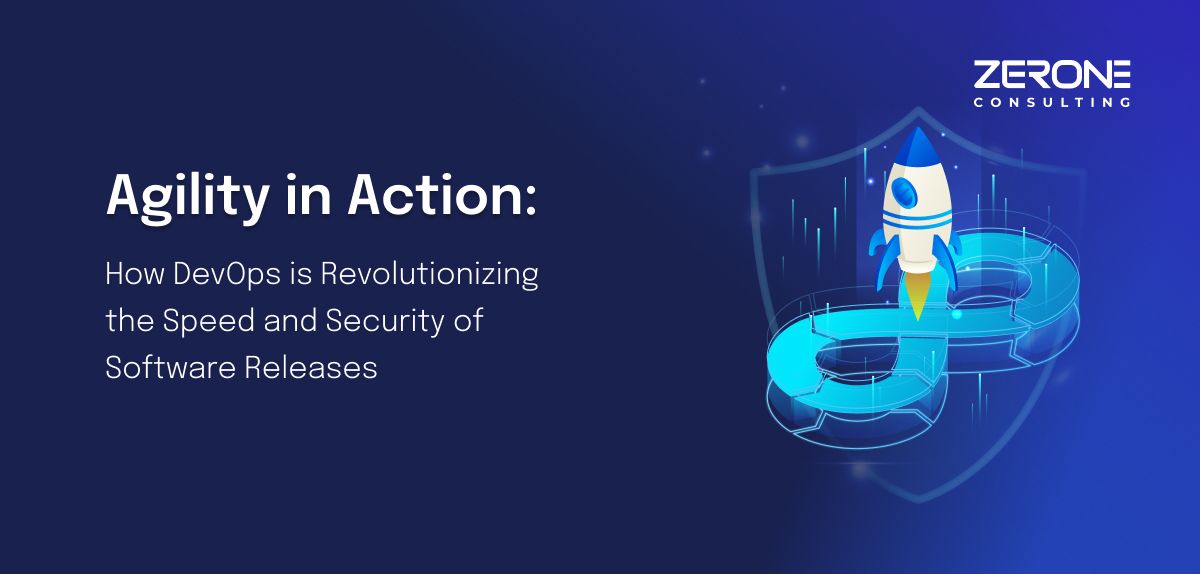Navigating the Data Migration Surge with Generative AI: A Strategy for 2024
In the swiftly evolving digital landscape of 2024, businesses face an unprecedented surge in data migration demands. This trend is propelled by the increasing need to harness the power of cloud computing, big data analytics, and advanced AI capabilities. Amidst this surge, Generative AI emerges as a pivotal technology, offering innovative strategies to streamline data migration processes, enhance efficiency, and mitigate risks. This article explores the cutting-edge advancements and actionable insights on utilizing Generative AI for data migration. With a focus on the transformative potential of Generative AI, we aim to equip you with the knowledge and strategies needed to streamline your data migration processes, enhance operational efficiency, and secure a competitive edge in today's fast-paced market.
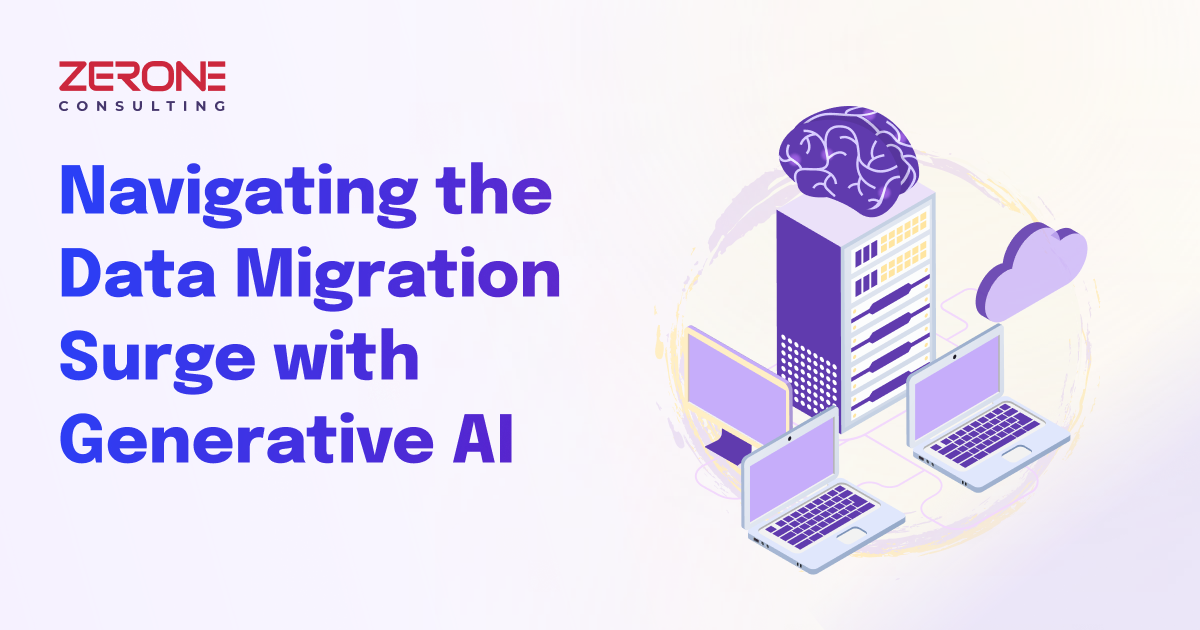
The Data Migration Imperative
Data migration, the process of transferring data between storage types, formats, or systems, is critical for businesses aiming to stay competitive in the digital age. The driving forces behind the 2024 data migration surge include cloud adoption, legacy system upgrades, and the integration of AI and IoT technologies. According to a recent survey, over 60% of businesses are in the process of migrating data to the cloud, with the primary motivations being cost reduction, improved scalability, and enhanced data analytics capabilities.
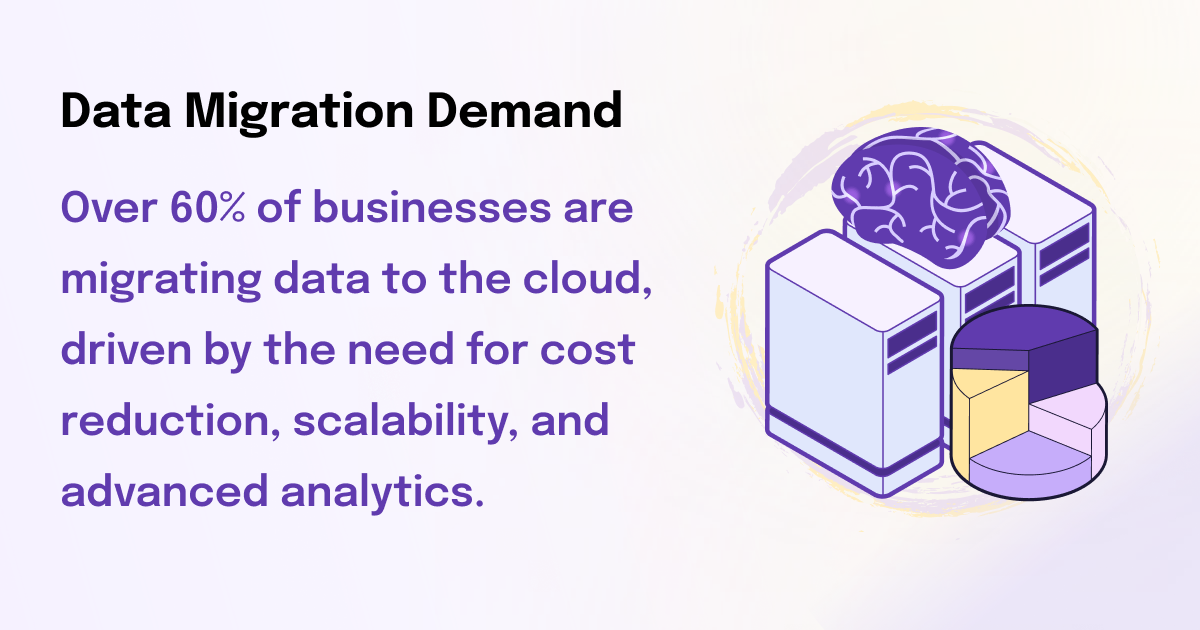
The Role of Generative AI in Data Migration
Generative AI, a subset of artificial intelligence focused on creating new data and content, is revolutionizing the way businesses approach data migration. This technology can automate and optimize several aspects of data migration, from data mapping and cleansing to validation and testing. By leveraging machine learning models, Generative AI can predict and resolve potential migration issues before they occur, significantly reducing downtime and ensuring data integrity.
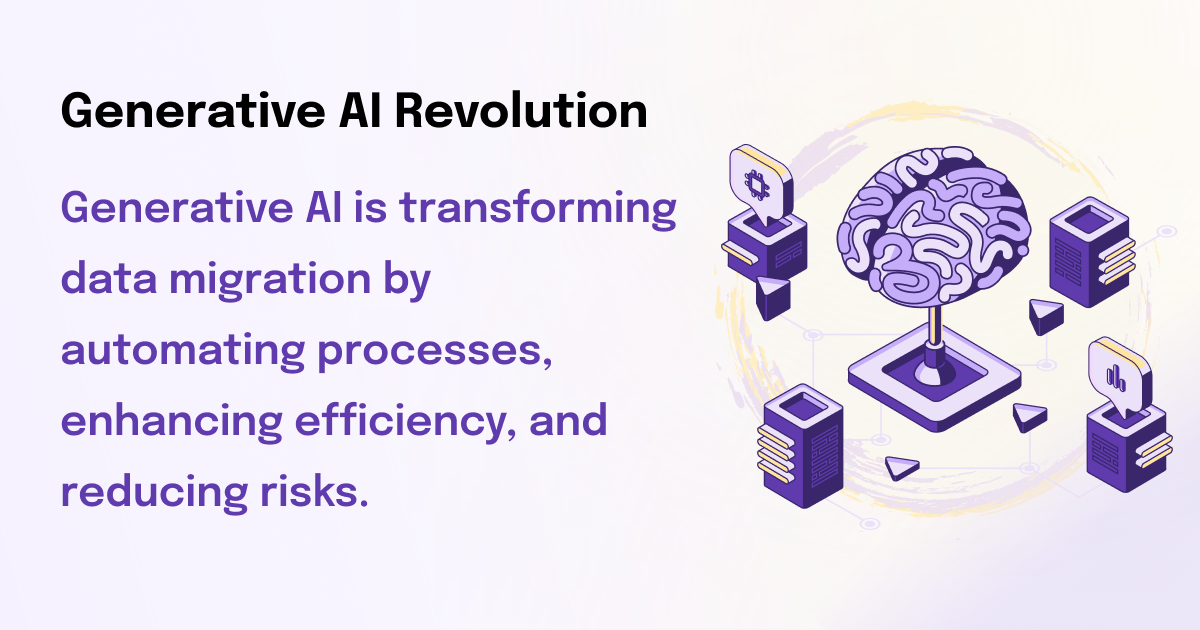
Practical Insights for Implementing Generative AI in Data Migration
-
Automated Data Mapping: Generative AI can automate the labor-intensive process of data mapping, accurately matching source and target data fields. This not only speeds up the migration process but also minimizes human errors.
-
Data Cleansing and Enrichment: AI algorithms can identify and correct errors in the data, such as duplicates or inconsistencies, and enrich the dataset by generating synthetic data that fills gaps, ensuring a high-quality migration.
-
Predictive Issue Identification: By analyzing historical data migration projects, Generative AI can predict potential issues and bottlenecks, allowing teams to proactively address them and ensure a smoother migration process.
-
Automated Testing and Validation: Generative AI can also automate the testing and validation phase of data migration, ensuring that the migrated data meets all specified requirements and behaves as expected in the new environment.
Benefits of Generative AI for Data Migration
- Efficiency and Speed: Automation of key migration tasks reduces the time and resources required for data migration projects.
- Accuracy and Quality: Enhanced data integrity and reduced errors through AI-driven data cleansing and validation.
- Risk Mitigation: Predictive analytics help in identifying and mitigating potential risks ahead of time.
- Innovation and Competitive Edge: By ensuring a seamless data migration process, businesses can more quickly leverage new technologies and maintain a competitive edge.
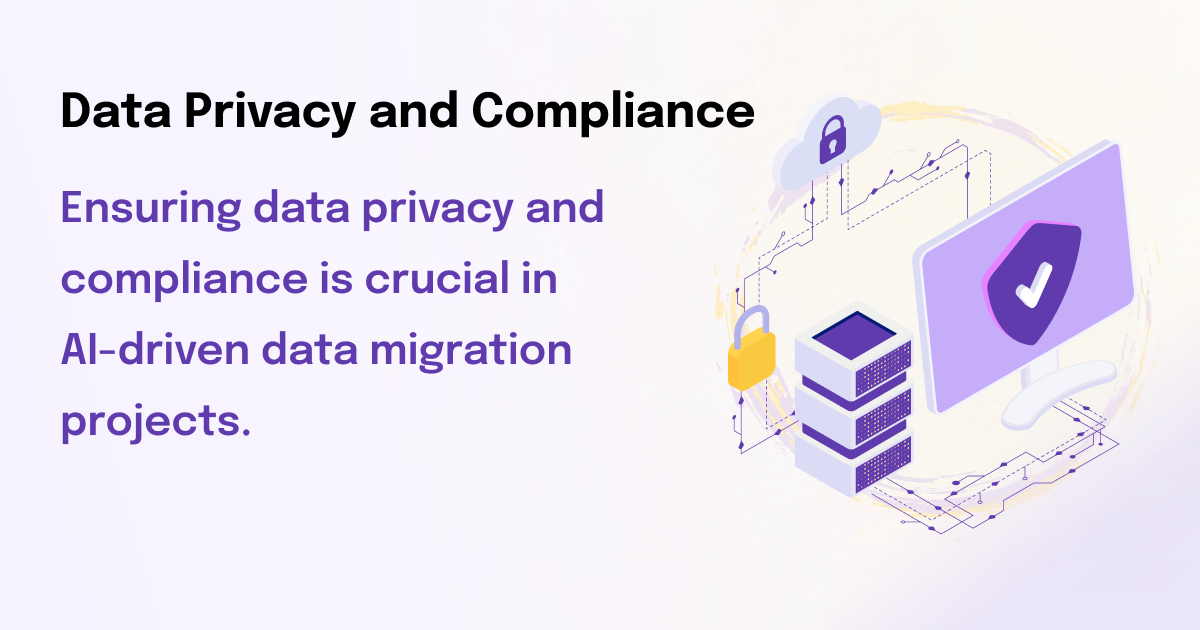
Challenges and Considerations
While Generative AI offers significant advantages, businesses must also consider potential challenges. These include the need for skilled professionals to manage and oversee AI-driven migration projects, ensuring data privacy and compliance, and selecting the right AI tools and platforms that align with the business's specific migration needs.
Future Outlook
As we look towards the future, the role of Generative AI in data migration is poised to grow. Innovations in AI technology will continue to enhance its capabilities, making data migration processes even more efficient, reliable, and cost-effective. Businesses that adopt and adapt to these AI-driven strategies will not only streamline their data migration initiatives but also unlock new opportunities for growth and innovation.
Conclusion
Navigating the data migration surge with Generative AI represents a strategic imperative for businesses in 2024. By harnessing the power of AI to automate, optimize, and innovate, business owners and industry leaders can overcome traditional challenges associated with data migration, ensuring their organizations remain agile, data-driven, and competitive in the digital era. As we embrace these technological advancements, the potential to transform data migration from a daunting task to a strategic asset becomes a tangible reality, setting the stage for a new chapter of digital transformation and business success.
We can help!
Why Scrum Fits Like A Glove
#Customapplicationdevelopment
Mvps - A Silver Bullet In Software Development
#Customapplicationdevelopment


